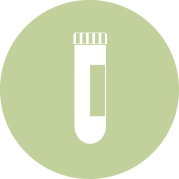Frequently Asked Questions
Click on the category of your interest to read the related FAQs.

Appointments
We would recommend a GP referral in order for us to be fully aware of your medical history. It is to your benefit for doctors who are involved in your healthcare to be communicating with one another.
Online Menopause Centre (OMC) is a private, self-pay clinic and we are not currently registered with any medical insurance providers. In general, medical insurance does not cover the cost of your menopause treatment but it’s worth checking with your insurance company.
Please note that following your consultation, you will be sent a Summary Letter, confirmation of your appointment and a receipt that you can present to your GP or insurance company as proof of your consultation and treatment with OMC. Unfortunately, we are not able to speak with insurance companies and deal with individual requests.
You book an appointment by visiting our website and clicking on the Book an Appointment tab. You can then enter your details, choose your preferred time, and pay for the appointment, after which you will receive an email confirming the appointment.
At the Online Menopause Centre you will have consultations via a video link. We do not have a physical clinic.
Initial consultation (30 minutes) – You will receive a medical history and consent form with your confirmation email which you will need to complete and return to us together with a proof of ID (either passport or driving licence) to info@onlinemenopausecentre.com
Follow up (20 minutes) – Please let us know of any changes in your medication or your symptoms.
- A few days before your consultation, please ensure that you know how to log on. If you have difficulty, you can contact our admin team who will take you through the necessary steps.
- You must make sure that you have good internet access.
- Consultations need to take place in a private setting. They CANNOT take place if you are driving, walking in the park, in a cafe or another non-private environment.
- The doctor will terminate the consultation if the above takes place, and you will need to rebook a new consultation and pay again.
When you register with us as a patient, you will be sent a web link to a form on our Patient Management System that will ask you to upload a form of photo ID (Passport / Driving Licence) and a ‘selfie’ picture of you with your ID that will formally verify and confirm your identification. The doctor will also verify your ID at the start of every consultation.
Yes. A copy of your ID will be saved on Heydoc medical software in you record for future identification purposes. The Heydoc platform meets the requirements of GDPR.
Please be advised that all of the OMC doctors are experienced in menopause health and will stand by the treatment plan they prescribed in your most recent consultation. If you have received different advice from another medical practitioner or your GP and would like to discuss this with your OMC doctor, you will need to book a Review consultation online on our website.
If it has been over a year since your last consultation you will need to book an Initial consultation. This will allow sufficient time for the doctor to note any changes since you were last seen and prescribe an updated treatment plan.
Yes, you can book a review consultation with a Nurse via our online booking link.

Blood Tests
In order to have a true picture of a woman’s hormonal balance, and therefore to choose the optimal treatment, it’s preferable to check her hormone levels. This is more important in a perimenopausal woman who could have a variety of deficiencies in a number of hormones.
If you have hormonal blood results within the last six months you do not need to have another blood test.
During your introductory consultation, your doctor will inform you what blood profile you need.
After your introductory appointment you will receive an email with details of the blood test discussed, including prices.
Call us on 020 8126 3440 to make payment.
You will then receive an email with the phone number for booking your private phlebotomy appointment. The bookings team will advise you on your nearest private phlebotomy clinic.
The results will be available 2-3 days after your blood test. Your doctor will review the results at your next appointment.
During the Initial consultation the doctor will email a copy of your results to you.
You can also request a copy of your results by emailing info@onlinemenopausecentre.com
If you are post-menopausal you can have a blood test at any time. If you are still experiencing regular or irregular cycles (i.e. you are perimenopausal) then you must have your blood test between day 18 to 22 of your cycle. Day one being the first day you start bleeding.
Please visit the website for up to date prices.

Prescriptions
There is no charge for the prescription that is given at the time of an Initial or Review consultation with an OMC doctor.
The prescription is valid for six months from the date that it is prescribed, however a prescription with schedule 4 controlled drugs (DHEA or Testosterone) is valid for 28 days. Apart from DHEA and Testosterone we do not prescribe any other controlled medications.
If your last consultation has been within the last 30 days, you can email info@onlinemenopausecentre.com with your clinical questions. However, if your consultation was more than a month ago, we kindly ask you to book a review appointment in order for all your clinical symptoms to be discussed fully with the doctor.
OMC will close its doors on Thursday 23rd December and open again on Tuesday 4th January. The last day to submit a prescription before the Christmas period is Monday 13th December. This provides our team and pharmacy partners with enough time to turnaround your prescription and send your HRT medication to you before the Christmas holidays.
HRT
There are three main reasons why a woman would decide to take HRT:
1. She is experiencing hormone deficiency symptoms:
- Oestrogen deficiency symptoms
- Progesterone deficiency symptoms
- Testosterone deficiency symptoms
- DHEA deficiency symptoms
2. To delay or to prevent diseases she knows she is predisposed to. For example:
- Osteoporosis
- Dementia
- Early cardiovascular disease
3. As an adjunct to her chronic disease management
- Inflammatory diseases
- Autoimmune diseases – diabetes, rheumatoid arthritis, inflammatory bowel disease, autoimmune thyroid disease (Hashimotos)
For the purpose of clarity and simplicity throughout our discussions we will be using the terms regulated bioidentical hormone replacement therapy or rBHRT to mean bioidentical hormones which are regulated by the regulatory authorities (also referred to as body identical hormone replacement therapy). These are available in a number of predetermined dosages and can be obtained from pharmacies across the country. These are licensed medications.
Compounded bioidentical hormone replacement therapy or cBHRT are bioidentical hormones prepared by compounding pharmacies based on the individual dosages prescribed by the doctor. They are unlicensed medications.
Bioidentical hormones are hormones which have chemical structures identical to the naturally occurring hormones a woman produces. They are extracted from soy and yams. Estradiol, progesterone and testosterone are all available in this format.
rBHRT (regulated bio-identical hormone replacement or body identical HRT):
Until not so long ago, menopausal women were prescribed combinations of equine estrogen and synthetic progestins to help them with their menopausal symptoms. Although this hormone replacement option has helped many women in the past and continues to do so, with the advancement of research, the menopause specialists are fast moving away from this and opting for the more body similar forms of hormone replacement (rBHRT). They are also moving away from oral administration of estrogen to transdermal routes.
The estrogen element can be found in gels like Estrogel or Sandrena and patches like Estradot. The progesterone comes in a capsule which is called Utrogestan and the dosage is 100mg.
Progesterone is the hormone which keeps the lining of the womb thin and therefore can help prevent endometrial build up and possible cancer. A woman who has a womb, cannot take estrogen alone. However, in a woman who has had a hysterectomy she often gets prescribed estrogen alone. We now understand that progesterone has more extensive and specific beneficial effects and therefore more specialists are opting to use it in women regardless of whether or not she has had a hysterectomy.
Some women cannot tolerate oral progesterone well and, in these circumstances, specialists prescribe Utrogestan to be taken vaginally. This method of administration is “off licence” but is very helpful for a group of women.
Testosterone is an important hormone in a woman. It’s important for her libido, mental agility, memory and energy to say but a few. This hormone has not been available or licensed for use in women in the NHS, but specialists have been prescribing a testosterone gel (with has licence for use in men only) as they have noticed a significant improvement in certain symptoms. They have advised women to use it in small (pea-size) quantities. This is said to be an ‘off licence’ prescription.
There is a testosterone gel (AndroFeme) which specialists prescribe privately in U.K. now. This treatment is licensed for use in women in Australia but only available by a private prescription in the U.K.
It usually takes between 6 to 8 weeks for you to see results of your treatment. However, the more deficiency a woman has in her hormones the earlier she will see the signs of improvement as she starts replacing the hormones.
As a rough guide, regulated (rBHRT) medications cost on average less than £1 per day and compounded (cBHRT) medications cost an average of £2-3 per day.
Here is the estimated cost of the most commonly prescribed rBHRT medications at OMC:
30 Utrogestan Capsules = £10
28 Sandrena 0.5mg Sachets = £10
Oestrogel Gel Pump 80g (64 pumps) = £10
8 Estradot Patches = £10 or £11
8 Estraderm Patches = £10
24 Estraderm Patches = £25 or £30
Side effects of taking HRT depends on which hormone you have been prescribed.
You may be prescribed one or more hormones in order to help you reach hormonal balance and to improve your symptoms.
Side effects include but are not limited to endometrial bleeding/spotting, breast tenderness, water retention, headaches, low mood, excessive body hair, acne.
It is quite common to experience some breast tenderness and occasional lower abdominal pain or some vaginal spotting after the start of HRT. These symptoms are usually mild and stop after a couple of days. However, if they are more severe and persistent please stop taking your HRT and contact us at info@onlinemenopausecentre.com
No. Lozenges come in the form of cubes. Each cube can be cut into ¼ smaller cubes. The dose on the pack shows how much hormone is in each large cube. E.g 200mg on the pack is equivalent to 50mg in each smaller cube.
In the majority of cases, you will be taking ¼ lozenge once or twice daily.

General Information
We recommend a pelvic scan at the start of your treatment in order to assess the endometrial thickness (the thickness of the lining of your womb) and also to make sure there are no cysts or polyps which could result in a bleed after starting HRT.
If you, together with your doctor, choose to start on a compounded form of HRT then it is necessary to repeat this scan every two years in order to monitor the endometrial thickness.
Any post-menopausal woman who has an unscheduled bleed will be asked to have a pelvic ultrasound.
For your safety, it is necessary for you to keep up with your national breast screening which is every 3 years between the ages of 50 and 70. For those women who are still on a form of HRT after 70 and under our care we recommend to continue with this screening.
Please note that based on your personal or family history, your doctor may ask for a mammogram before this age or at a more regular interval.
Women are at a greater risk of developing osteoporosis after menopause, as their estrogen levels fall. A Dexa scan is a bone density scan which assesses your bone mineralisation. If there is an indication for you to have this investigation as part of your menopause care, your doctor will discuss it with you.
You can always contact us by email on info@onlinemenopausecentre.com or call us during normal office hours (Monday to Friday 9am to 5pm) on 020 8126 3440.
Cancellations or changes to your appointment will require two working days’ notice.
Any cancellation with less notice will result in the full consultation fee being charged. Should you wish to rebook, you will need to pay the full rate for the new consultation.
Working days are Monday to Friday between 9am to 5pm.